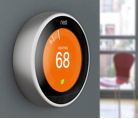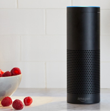John Driver, CEO of Lynx Technology will be speaking at Parks Associates 22nd-annual CONNECTIONS: The Premier Connected Home Conference in San Francisco. He kindly provided the analyst team with insights the future of the smart home. John will be participating on the Connected Ecosystems: Entertainment and Smart Home panel on Wednesday, May 23, at 4 PM.
When will clever homes become smart homes?
Let’s face it: smart homes aren’t really all that “smart”. Basic functions, such as turning lights on and off, setting temperatures and environmental controls, and raising and lowering blinds were all “smart” features offered in home automation over a decade ago. The introduction of voice-activated devices such as Google Home and Amazon Echo moved the needle a bit, and being able to control things with our smartphones is certainly a bonus, but when it comes down to it, are homes really all that smart?
We argue that in 2018, smart homes are merely clever homes. And clever is nice for convenience. But in order for homes to be smart, we have a long way to go. Let’s look at a few examples where we see a glimmer of intelligence and promise for the future of smart homes.
Artificial Intelligence
When we say artificial intelligence (AI), many people still think of sci-fi movies. However, the reality is that AI is a driving technology behind the smart home. Today, we are starting to see examples of AI in the home, and most people don’t recognize AI as AI (they just call it a smart home).

The average consumer is using their voice and trusting their Amazon Echo (Alexa) to order things on Amazon, turn lights on and off, play music, and adjust the home’s temperature. It is not a great leap to see Alexa anticipate the needs of the home without human intervention. Amazon already has years of experience with one of the most advanced recommendation engines on the planet, Amazon.com. They will no doubt extend this expertise to Alexa. Others will follow. Our lives are getting busier, and AI will become like another (far more helpful) member of the household. Watch the home - many things are coming for AI here.

Interoperability
How frustrating is it when you try to get up a new home automation system – whatever it may be – and you download yet another application to your smart phone to control yet another thing in your house? Garage door on one app, blinds on another, plugs on this one, lightbulbs on that one. My Nest doesn’t talk to my Ring. Some are voice controlled, some are not. None are talking to each other. Occasionally (if you are lucky) they are Alexa-enabled but that is still clunky and doesn’t pass the “mom test” for set up (you know, when your retired mom can set up herself without a call to you for tech support). One application should be able to drive everything in a sleek and user-friendly interface, with auto-device detection, command, control, troubleshooting and event and rules-based operations. Consumers shouldn’t have to worry about this either: entire new business models are being developed by service providers and OEMs to deliver smart home services including provisioning, monitoring, control and remote access. IoT companies such as Lynx Technology have developed device connectivity software that allows consumers to quickly and securely discover and enjoy their smart home devices and media libraries. Plus, industry organizations including Open Connectivity Foundation have introduced an open source implementation (IoTivity) and certification program to improve interoperability with IoT deployments, especially within the home.
Predictive Behavior
The smart home of the future will truly be smart enough to know that devices should be connected to each other. This is more than just the grouping that Alexa does now. It also will involve things tangent to the home, such as the connected car. So, it will know that every weekend you go to the lake during the summer. And on Sunday night, when you come home around 7 pm, it should trigger when you leave the lake house to begin cooling the house to a temperature of about 70 degrees for you. It will also turn the lights in the kitchen when you are a quarter mile away, open the garage doors when your wheels hit the driveway, and turn the hot tub temperature up to 98 degrees so you can enjoy a relaxing evening before work tomorrow. THAT is smart.
Voice User Interface (VUI)
“Speaking” of Alexa, devices such as Echo and Google Home that use natural language processing and voice user interface will become a much larger part of our daily lives. Did you see the recent demonstration at the Google I/O 2018 conference about Google Duplex and the Google Assistant phone call demo? Now, regardless of how much of a demo is staged vs. real, there is no doubt that this is where we are headed and conversations about the future of voice need to be happening. Voice plus AI equals an unparalleled experience for the user both in the home and beyond. Interacting with your environment (e.g. yelling at a smoke detector “I’m just cooking!” and having it understand there isn’t a fire, so it doesn’t auto-dispatch emergency services) is just next-level awesome. It’s not far away. Until we can do these things, I’m afraid my smart home is just clever.
For more information on CONNECTIONS, visit: www.connectionsus.com.


